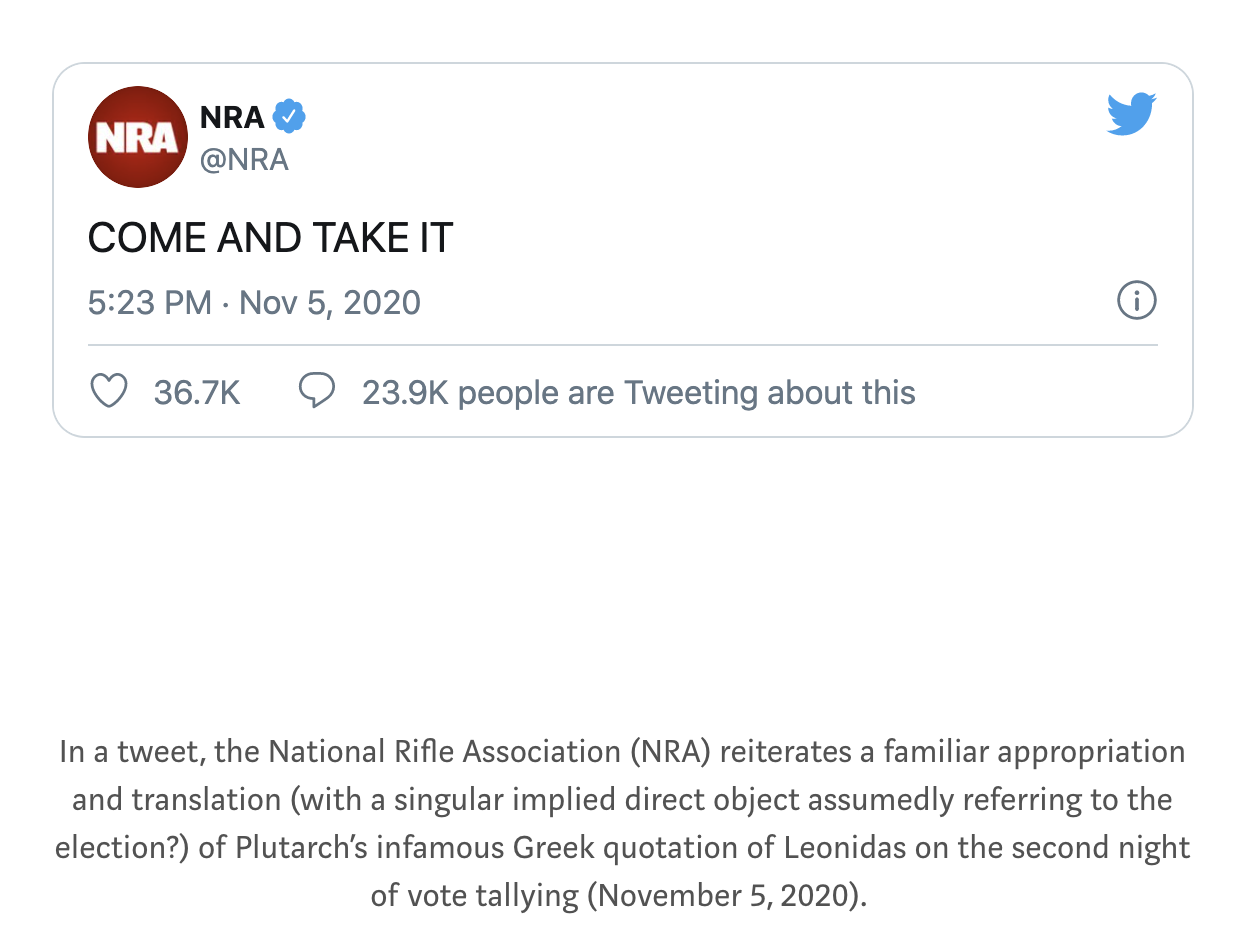Blog: (Re)habilitating Old Woman A, or: Reading female bad language in Assemblywomen as a 40-something woman
By Amy Coker | November 7, 2022
Blog: Come and Take It: The End of Eidolon
By Sarah Bond | December 4, 2020
Late in the afternoon on November 5, 2020 — close to 24 hours after polls across the country had closed for the 2020 elections — the NRA tweeted a familiar phrase: “Come and Take It.”

Blog: Women in Classics: Froma Zeitlin
By Claire Catenaccio | June 12, 2020
Froma I. Zeitlin retired from Princeton University in 2010, where she was the Charles Ewing Professor of Greek Language and Literature in the Department of Classics and Professor in the Department of Comparative Literature. Dr. Zeitlin received her B.A. from Radcliffe-Harvard in 1954 and her Ph.D. from Columbia University in 1970. She is a specialist in Greek literature from Homer to late antiquity, with particular interests in epic, drama and prose fiction.
Blog: How Do We Record the History of Women in Classics?
By Claire Catenaccio | November 15, 2019
Today we wish to introduce a new project: Women in Classics: Conversations. This venture consists of a series of interviews with female professors of Classics, many of whom were the first hired or the first to receive tenure at their institutions in the 1970’s and 1980’s. These academic women blazed a new trail as teachers and scholars at a time when university positions in many fields were overwhelmingly held by men. They did so in a discipline that has been described as “one of the most conservative, hierarchical, and patriarchal of academic fields.” Their experiences, as presented in these interviews, provide colorful, candid snapshots of a critical moment in the history of the discipline.
Blog: Pygmalion, Polychromy, and Inclusiveness in Classics
By Aimee Hinds | January 24, 2019
I love Classics, but it isn’t my first love; that was art, specifically Pre-Raphaelite art. A visit to my local museum with school introduced me to them, and my eight-year-old self thought it was fate when I found a painting with my name that I thought was by Edward Burne-Jones (Amy by Arthur Hughes; it wasn’t spelt right but it wasn’t often anyway, and still isn’t). A postcard sent shortly after the museum visit by a relative, featuring A Mermaid by John William Waterhouse (but wrongly attributed on said postcard to Burne-Jones) cemented my love of the Pre-Raphaelites, and Burne-Jones in particular.
Blog: Global Feminism and the Classics at the SCS Sesquicentennial
By Andrea Gatzke | December 20, 2018
As the field of Classical Studies has sought to maintain its relevance in our ever-changing modern world, it has begun to incorporate new approaches. Today there is much more scholarship on topics such as gender, sexuality, and race in the ancient world, for example, than there was even thirty years ago. Much of this change has resulted from the incorporation of theoretical frameworks from fields outside of classical studies, including literary criticism, gender and sexuality studies, and social theory. Yet there is still so much work to be done, especially when it comes to understanding marginal groups in antiquity, such as women, ethnic minorities, and sexual minorities.
